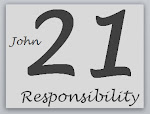John Eldridge did it to me again with his book Beautiful Outlaw.
I've spent the last several weeks brewing, festering, boiling over this. Do we really need "the church." I'm not talking about the the body of Christ--of course we need each other. I'm talking about the man-made institution and all of its traditions.
The buildings. The programs. The organization. The structure.
Do we really need it?
Like so many other things, it's not the vehicle that is evil. "Church" is not evil. God has worked through "church" to accomplish His work, but it becomes the enemy when godless, spiritless men and women grab hold of it and leverage it for their own purposes.
- Developing programs becomes more important than teaching, challenging, and inspiring people to follow Jesus
- Building a tight-knit, comfortable, happy group becomes more important than leading people to follow Christ
- Appeasing pharisees or seekers becomes more important than loving and following Jesus
- Achieving excellence becomes more important than making disciples of Jesus
- Maintaining the image of an active, loving church becomes more important than walking in the footsteps of Jesus
- Performing tasks efficiently becomes more important than showing people what it means to be Christ-followers
- Establishing and upholding man-made rules, standards, and expectations becomes more important than being in love with Jesus
The church exists for the purpose of facilitating the process of making disciples of Jesus. If it is not leveraging its resources to this end, it has become the enemy of Christ's mission.
Let's not sugar-coat it. Many churches have become the enemy of the Gospel of Jesus Christ. Pray that these godforsaken, human-operated establishments are shattered by the love of Christ. Pray that we have the strength, courage, and stamina it takes to be friends of Jesus and facilitators of his mission.
Let's not sugar-coat it. Many churches have become the enemy of the Gospel of Jesus Christ. Pray that these godforsaken, human-operated establishments are shattered by the love of Christ. Pray that we have the strength, courage, and stamina it takes to be friends of Jesus and facilitators of his mission.










